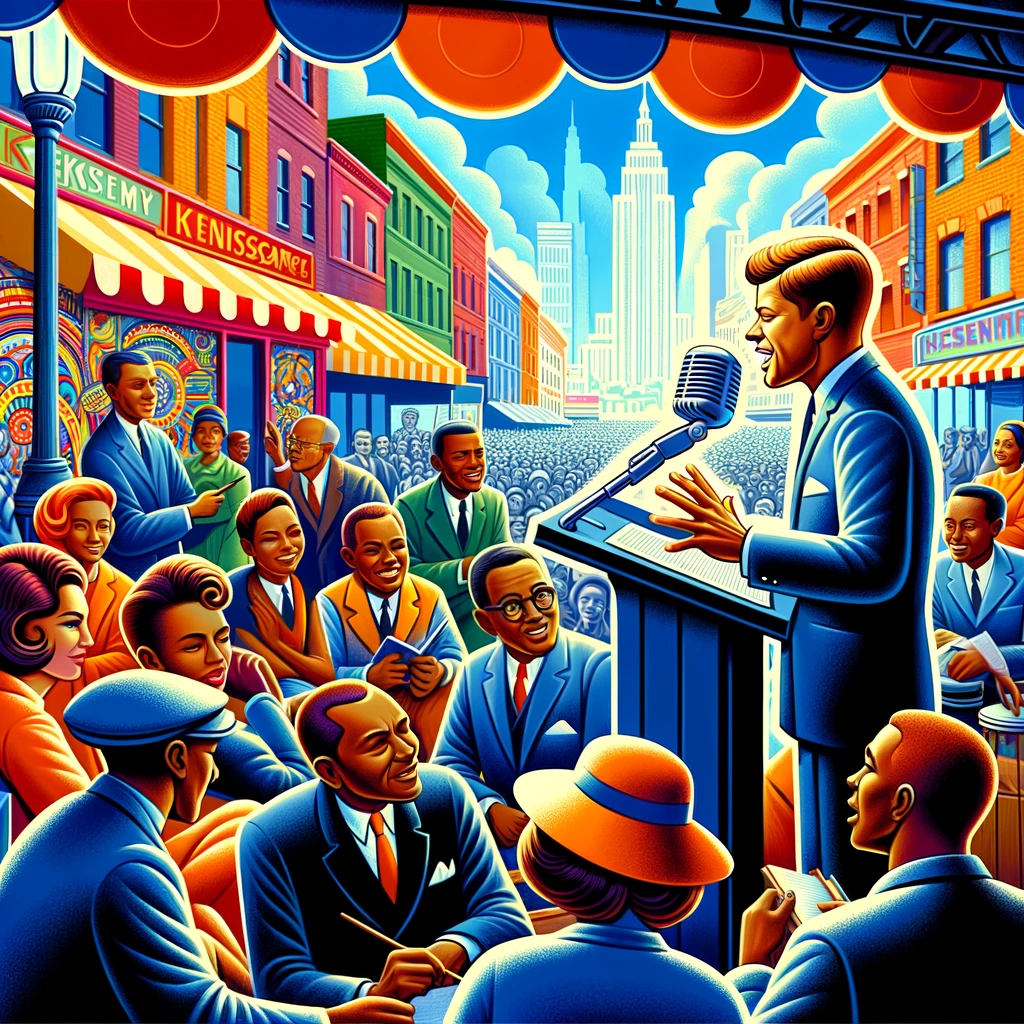In his inaugural address on January 20, 1961, President John F. Kennedy crafted a speech that resonated with hope, responsibility, and a call for unified action both at home and globally. This address not only marked the beginning of his presidency but also aimed to inspire a new generation of Americans and international allies toward collective action and mutual respect.
Kennedy’s speech is famously remembered for its powerful call to action: “Ask not what your country can do for you—ask what you can do for your country.” This statement encapsulates his vision of civic responsibility, urging citizens to contribute actively to the nation’s progress rather than passively expecting benefits. It was a plea aimed at fostering a robust participatory democracy where each individual’s contribution matters.
Unity and cooperation were pivotal themes in Kennedy’s address. He emphasized the importance of working together, noting that the United States and its allies could achieve much more collectively than by acting alone. His appeal for unity extended beyond domestic politics, reaching out to old allies and newly independent nations alike, suggesting that together, there is little that could not be achieved in terms of global cooperation and progress.
In the realm of international relations, especially against the backdrop of the Cold War, Kennedy highlighted the urgent need for peace and conflict resolution. He advocated for diplomacy and peaceful negotiations as the primary tools for resolving international tensions, presenting the United States as ready to lead in promoting global peace and stability. His approach marked a deliberate move towards easing global tensions and preventing conflicts through dialogue rather than force.
Kennedy’s commitment to supporting emerging nations was clear as he pledged to help them achieve freedom and resist colonial and tyrannical oppression. This promise aimed to align the United States with the forces of self-determination and independence worldwide, building relationships based on mutual respect and the shared value of liberty.
Finally, Kennedy dared to dream big with his innovative aspirations for progress. He called for joint efforts to explore space, conquer deserts, eradicate diseases, and foster the arts and commerce. This forward-looking perspective was not just about technological or scientific achievements but also about enhancing the human condition and enriching cultural life globally.
John F. Kennedy’s inaugural address remains a profound call to service and a beacon of American values and aspirations. It continues to inspire due to its enduring themes of responsibility, unity, peace, support for human dignity, and a relentless pursuit of progress. Through this speech, Kennedy sought to ignite a fire of active participation and hope, setting a path for a future marked by cooperation and a shared commitment to a better world.


